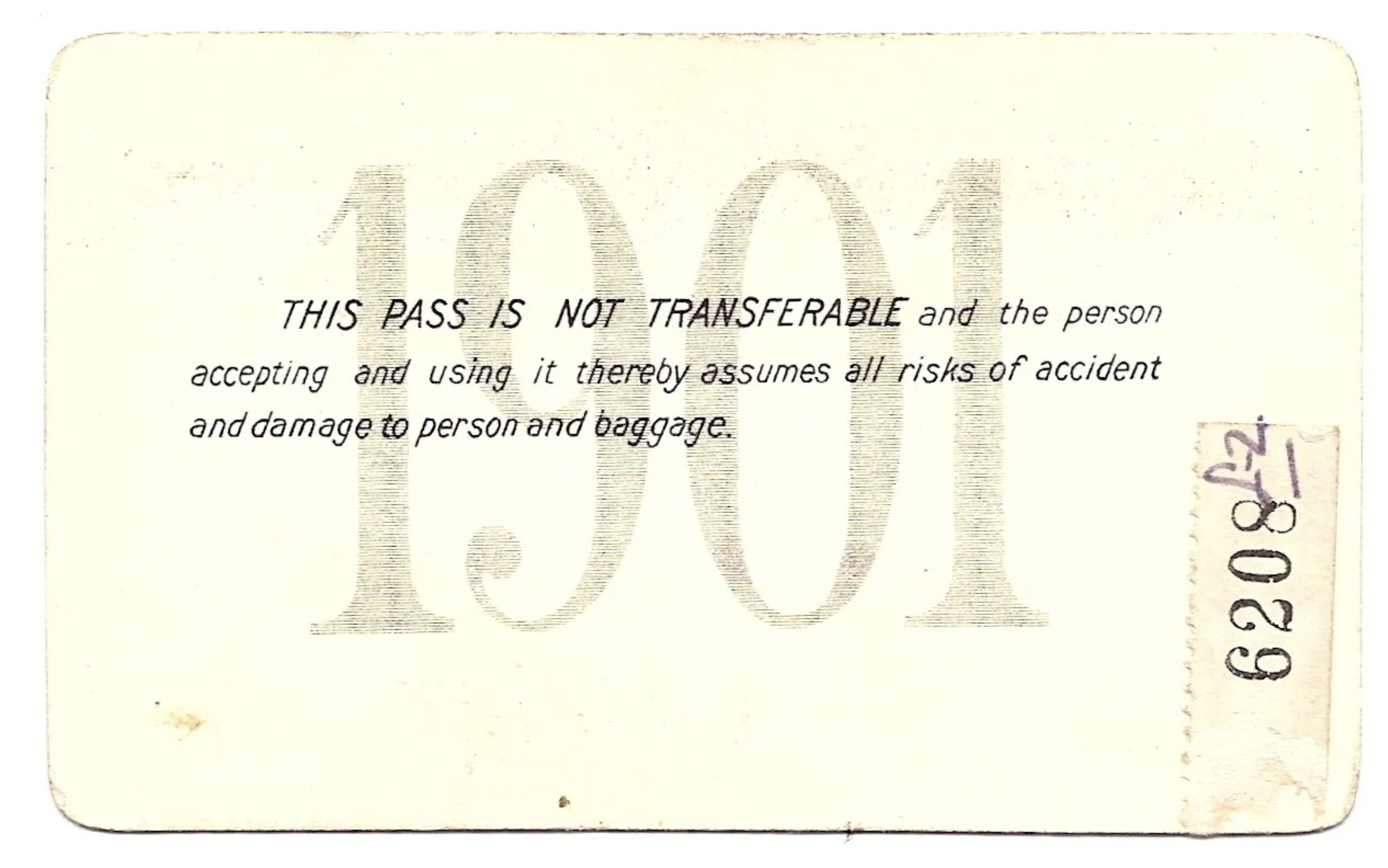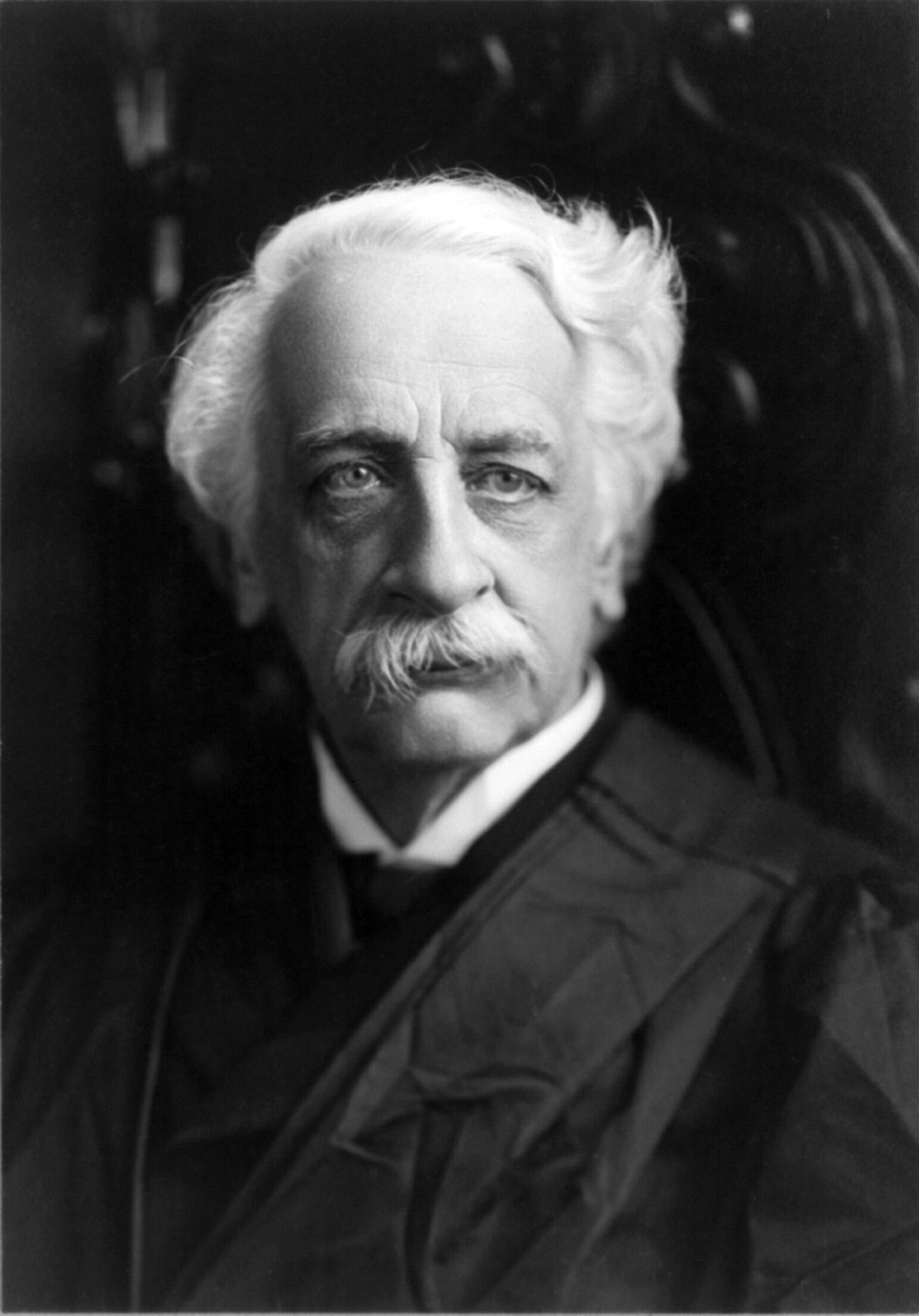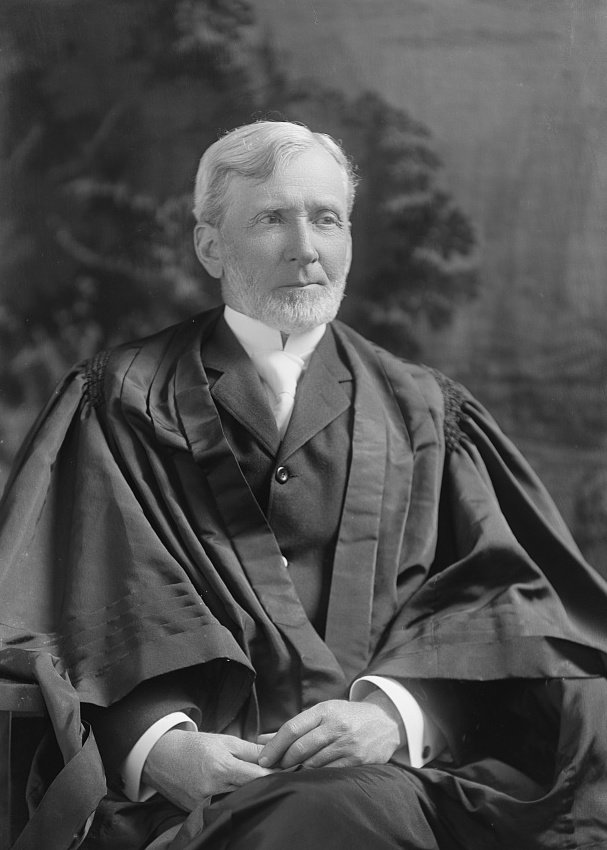Louisville & Nashville Railroad Co. v. Mottley
Key Principle
Well-Pleaded Complaint Rule: federal question jurisdiction requires the plaintiff’s initial complaint to show that their right to relief depends on federal law; anticipated defenses or counterclaims based on federal law do not count.
Case Overview
CITATION
ARGUED ON
DECIDED ON
DECIDED BY
211 U.S. 149
Oct. 13, 1908
Nov. 16, 1908
Legal Issue
Can an anticipated defense to a plaintiff’s claim be raised to qualify a suit for federal question jurisdiction?
Holding
No, a suit qualifies for federal question jurisdiction only when the plaintiff’s statement of their own cause of action shows that it is based upon a federal law or the Constitution.
One year railroad pass similar to those issued to the Mottleys | Credit: AALS
Background
On September 7, 1871, Erasmus and Annie Mottley were injured in a train wreck. In exchange for releasing Louisville & Nashville Railroad Co. from liability for their injuries, they received free lifetime passes to the railroad that would be renewed annually.
In 1906, Congress passed the Hepburn Act, which banned certain types of free passes starting from January 1, 1907, in order to prevent them from being used as bribes for government officials. As a result, the railroad refused to renew the Mottleys’ passes, and the Mottleys filed suit in federal court for enforcement of their contract. The lower courts decided in favor of the Mottleys, and the railroad appealed to SCOTUS.
Summary
Unanimous decision for Louisville & Nashville Railroad Co.
Louisville & Nashville Railroad Co.
Mottley
White
Brewer
Day
Harlan I
Holmes
Fuller
McKenna
Moody
Peckham
Opinion of the Court
Writing for the Court, Justice William Moody explained that jurisdiction must be determined based on the plaintiff’s statement of their own cause of action in their original complaint, not based on anticipated defenses. Explaining 28 U.S.C. §1331, which governs federal question jurisdiction, Justice Moody wrote, “It is the settled interpretation of these words, as used in this statute, conferring jurisdiction, that a suit arises under the Constitution and laws of the United States only when the plaintiff’s statement of his own cause of action shows that it is based upon those laws or that Constitution.”
Since the plaintiff’s claim was based on the enforcement of a contract and didn’t arise under the Constitution or a federal law, Justice Moody determined that the federal question only arose as an anticipated defense in the case. Therefore, since there was no federal issue stated by the plaintiff to support their claim and there was no diversity of citizenship, the case was dismissed for lack of jurisdiction.










